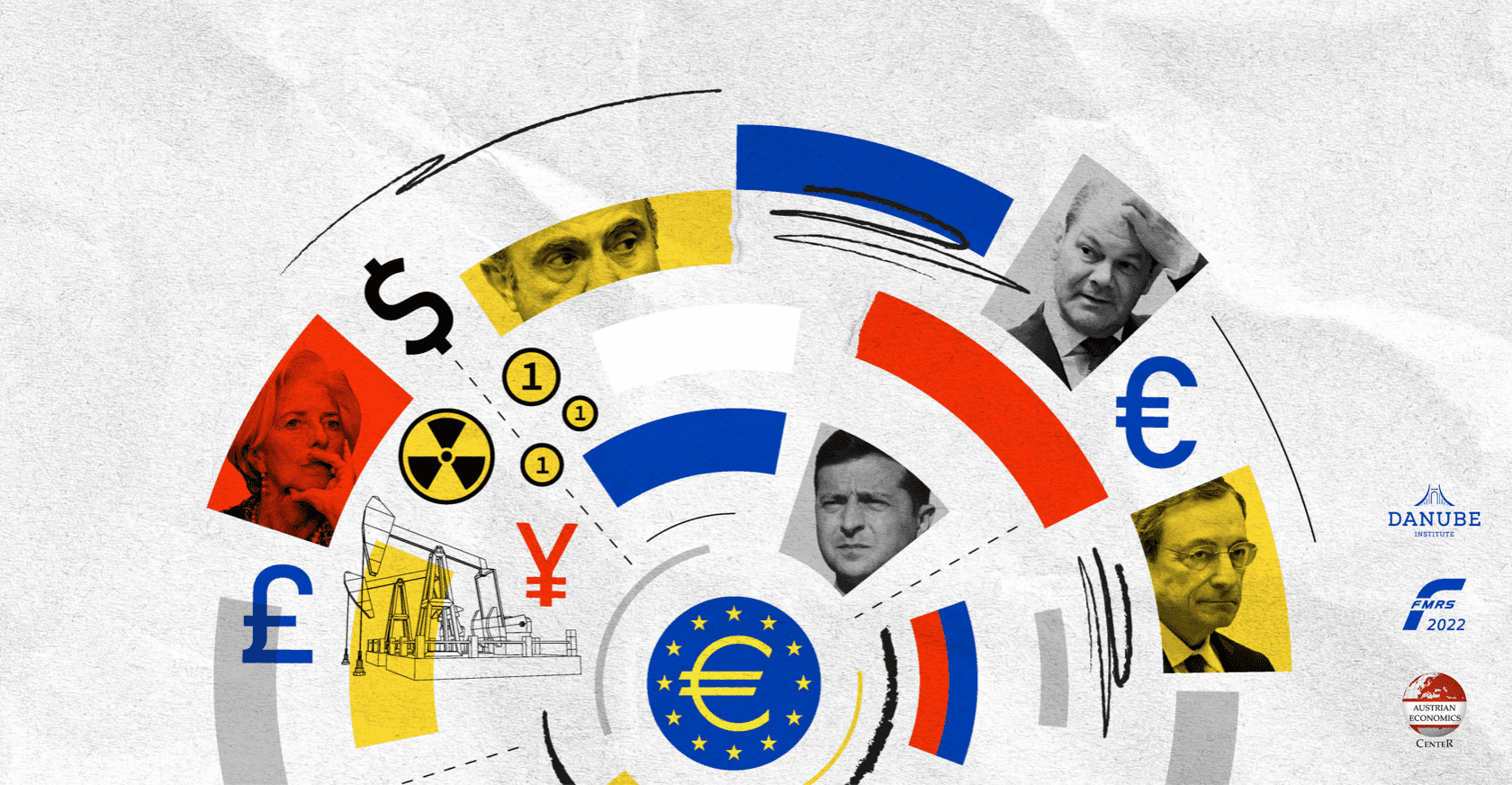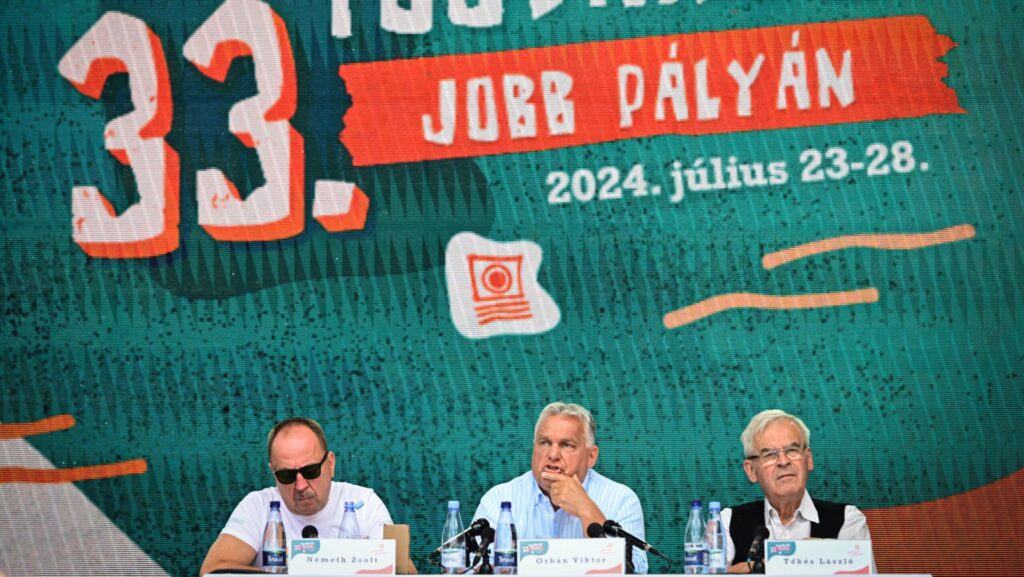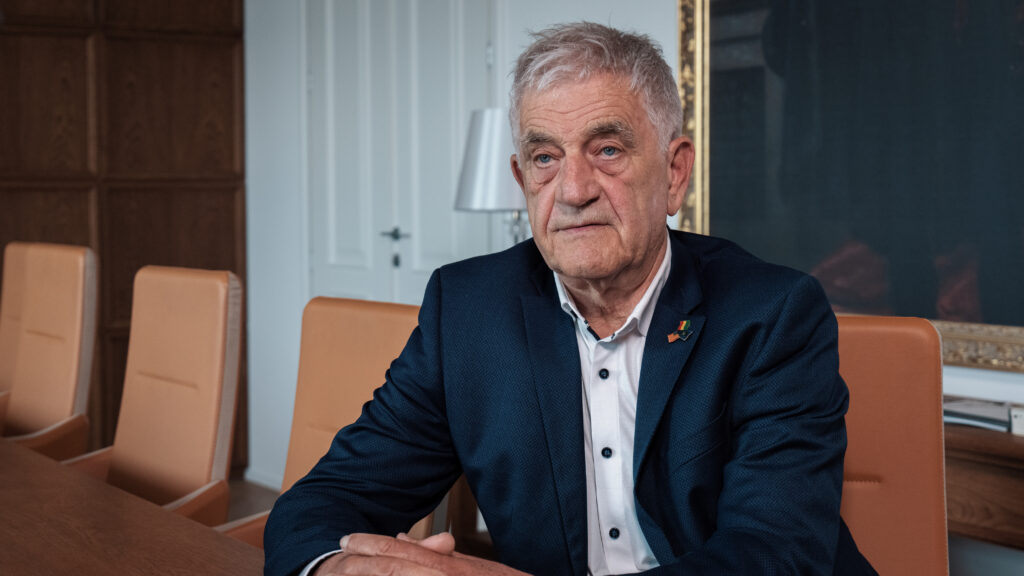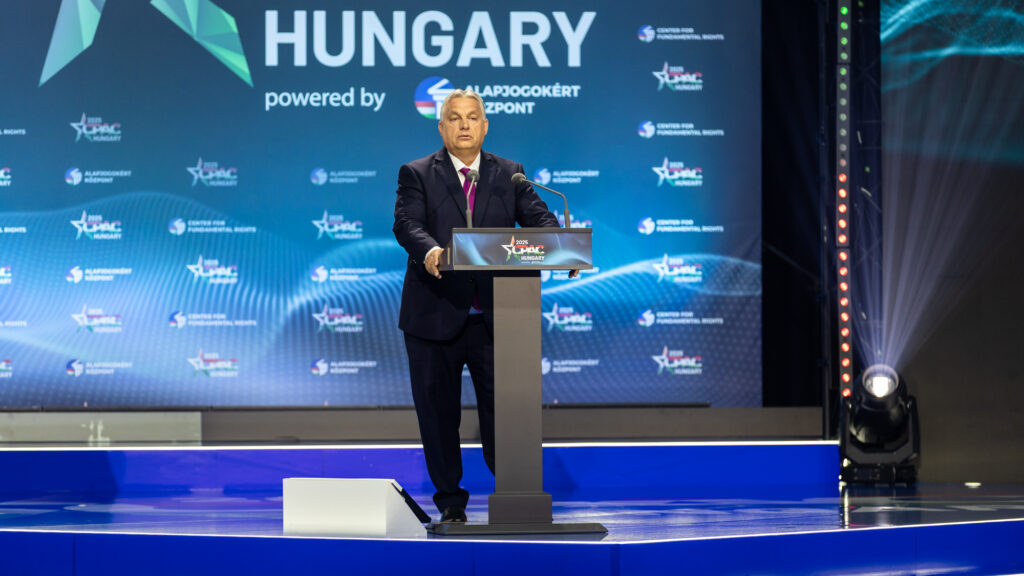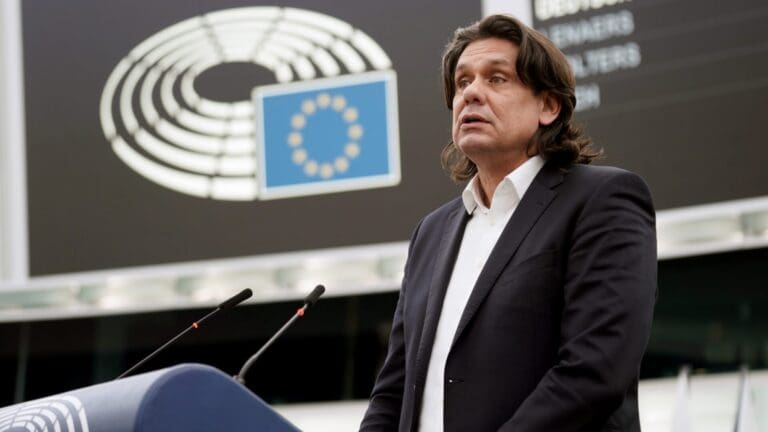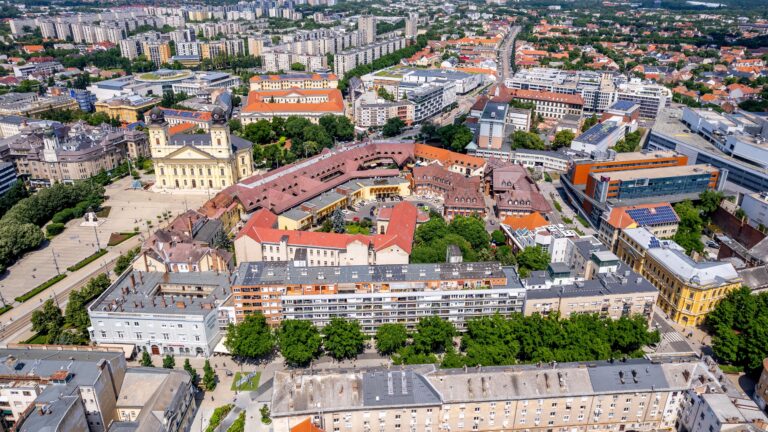The Free Market Road Show, which is a series of events organised by The Austrian Economics Centre aiming to promote free market economics and libertarianism in general, arrived at the Danube Institute on the 27th of April. The subtitle of the Road Show– the New World Disorder and Proposed Solutions– foretold that the fate of Central Europe, geopolitical struggles and their inevitable clash with economic liberalism were the foci of the four panels.
The first panel concentrated on the V4 group. The speakers were Hungarian economists – Szabolcs Pásztor, associate professor at the National University of Public Service, Géza Sebestyén, head of the Economic Policy Workshop at Mathias Corvinus Collegium and associate professor at Corvinus University, and György Kerekes, director at the Makronóm Economic Research Institute. The talk was moderated by Anton Bendarzsevskij, director of research of the Danube Institute. The panelists recounted the rise of the Visegrád Group from being “the back of beyond” to “powerhouse of the European Union”. They noted that the economic revival in the region was especially spectacular during the years following the financial crisis of 2008-2009. However, that trend of continuous growth was jeopardized first by the COVID-19 crisis, and is now threatened by the Ukraine war. The panelists highlighted the high rate of foreign direct investment (FDI) ratio in the V4 countries, and the presence of a highly qualified and productive workforce. They agreed that what has so far been a successful economic crisis management is largely due to what these countries did not do: for example, they did not distribute “helicopter money” like the United States and the United Kingdom did, but focused on keeping people in their jobs. While the inflation of the V4 is certainly a runaway one, the panel noted that it is not a critical problem as long as growth outpaces it. In additions, the sharp rise of interest rates is also a good sign of sound economic policies in a high-inflation environment, the panelists added. The panel agreed that the region still lags behind, however, the older member states in terms of research and development spending. Hopefully, this matter will be resolved after getting the economy back on track, perhaps along with the much-needed reform of the academic sector in the case of Hungary.
The panelists stressed that the foundations of the energy crisis had been laid way before the war in Ukraine
The second panel addressed the energy crisis of Europe. It concentrated primarily on the Russian-European relationship and the grave question of the security of gas supplies. John O’ Sullivan, President of the Danube institute chaired a panel of experts from various European countries: János Csák, former chairman of Hungarian oil company MOL, professor Werner J. Patzelt, political scientist and political advisor from Germany, Czech MEP Alexandr Vondra, and U.S. business executive Alex Cranberg, chairman and founder of Aspect Holdings, a leading oil, gas and geothermal explorer in Central Europe. The panelists stressed that the foundations of the energy crisis had been laid way before the war in Ukraine. As professor Patzelt underscored, the Europeans–led by Germany–tried to reach certain climate defence goals while phasing out at the same time their nuclear power after the accident at Fukushima in 2011. This was a kind of “sunshine policy,”that is making decisions presupposing that there will be no bad weather later on. Initially, EU leaders EU placed all their bets on Russian dependence, with German politicians even torpedoing the Nabucco gas pipeline, which could have delivered natural gas from the basin of the Caspian Sea, from Azeri sources, professor Patzelt reminded. Now not only is Nabucco now missing, but the gas capacities of Azerbaijan are occupied by Russian companies. It is clear that there have to be a certain type of settlement with Russia, as Europe and the Eastern superpower are interdependent, the panelists concluded. István Csák noted that while everybody recognizes this fact, the EU chastises Hungary for doing business and keeping cordial relations with Moscow – while it was Hungary that had lobbied the hardest for Ukraine and the West Balkan countries to be allowed into the alliance.
Following up on the challenges of V4 countries and the energy crisis, the next panel addressed the global outlook on inflation, growth, and debt. It was moderated by former investor and head of bank trading rooms, executive director of the Foundation for Fund Governance John Prout. This panel featured mostly libertarian and conservative economists and columnists: Dr. Dan Mitchell, libertarian founder of the Center for Freedom and Prosperity; Dr. Alberto Mingardi, director of the Bruno Leoni Institute, and Italian think tank; John Fund, national-affairs columnist for National Review; and Craig Briddle, libertarian author and board member of the Prometheus Foundation. They outlined a wide perspective on inflation and debt, emphasizing that the welfare societies of the present are unsustainable on the long run, practically regardless of the actual situation, due to the demographic decline of the West (and of a large part of the world). There simply will not be enough people to bankroll the dependent strata of society, the panelists agreed. They also analysed the current financial situation of the United States. They noted that President Biden would even welcome a short, temporary recession in the first quarter of 2023, as it would give him the chance to boast an economic recovery during his re-election campaign. John Hume noted that the Fed and Wall Street are no longer the assets of the “right” or of the Republicans, as capital these days is mostly “woke”, and thus eager to please the Democratic Party. It is still a question how they would manage the runaway spending plans of Joe Biden’s “Build Back Better” programme and high inflation at the same time. Mr. Mingardi noted that in the long term, it would be more prudent to introduce spending caps instead of debt caps, as they are always moved when the–uncontrolled– rise of spending reaches them. Mr. Briddle pointed out the core moral problems of state spending. He suggested that it all comes down to the faulty notion that it is important to help sustain other people’s lives. As opposed to that, the state’s real role is to provide safety for everyone and enable them to get on with their lives totally independently, Mr. Briddle noted, quoting American Conservative columnist Rod Dreher who said that the best welfare is a job.
The panelists attempted to answer the question whether China is ultimately a “paper tiger”, and thus bound to fail
The last panel concentrated on the role of China in the post-war/post-Covid world. China expert Gergely Salát moderated the discussion between Ádám Kerényi, researcher at the Hungarian Academy of Sciences, and Li Zhao Schoolland, director of external relations-Asia Pacific for the Acton Institute. The panelists attempted to answer the question whether China is ultimately a “paper tiger”, and thus bound to fail. Mr. Kerényi outlined the general elements of the relationship of the Far Eastern giant and the West, while Mrs. Schoolland looked at the supposed weaknesses of Beijing. She noted the high level of debt, the over-centralization and the neglect of core economic problems. Mr. Kerényi concurred and highlighted the exodus of talented students from China because of the country’s interior problems. In turn, Mr. Salát pointed out that China, despite all the dark predictions, has actually been persistently growing and developing in the last four decades. Mrs. Schoolland replied that most of the economic growth has been generated by prodigious government spending on massive economic projects, and not by sustainable initiatives.
Summarising the conversation, Mr. John O’ Sullivan noted that success is not easily defined when two parties have totally different cultural standards and views of life. His remarks served as a perfect introduction to the remarks of Calum T. Nicholson, a lecturer at Trinity College and a Visiting Fellow at MCC and Danube Institute. He spoke about what he described as the dead end of expertise: he noted that while objective thinking prevails, context and subjectivity is left out. Similarly to how the brain works, the rationalist Left can understand the facts of the world, but only the contextualizing Right can make them make sense, he suggested. He stressed the importance of considering humbly the wide range of possible understandings of a given fact, which is really hard for experts who “know a lot about little”. But it is essential, lest we get lost among the facts and never find the big picture, Mr. Nicholson opined. While considering all the problems of a world struggling with a land war in Europe, and the aftermath of a pandemic, we should remember to approach facts humbly and always take their subjective and contextual meanings into consideration, Mr. Nicholson concluded.

